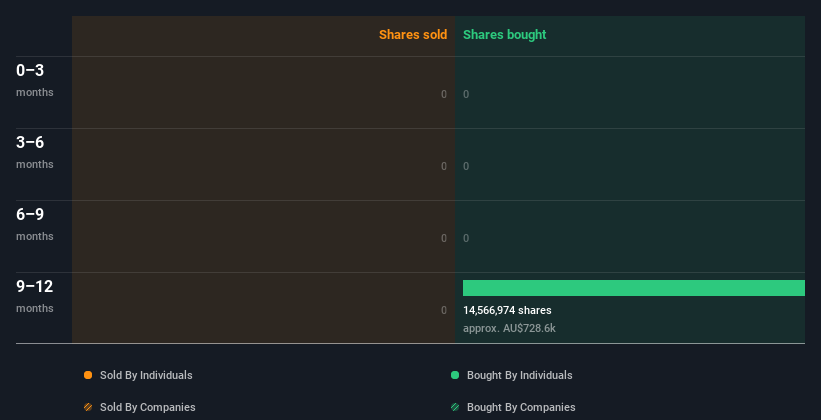
Insiders who purchased AU$728.3k worth of Resource Mining Corporation Limited (ASX:RMI) shares over the past year recouped some of their losses after price gained 13% last week. However, total losses seen by insiders are still AU$481k since the time of purchase.
Although we don't think shareholders should simply follow insider transactions, we would consider it foolish to ignore insider transactions altogether.
See our latest analysis for Resource Mining
The Last 12 Months Of Insider Transactions At Resource Mining
In the last twelve months, the biggest single purchase by an insider was when Executive Chairman Asimwe Matungwa Kabunga bought AU$500k worth of shares at a price of AU$0.05 per share. That means that an insider was happy to buy shares at above the current price of AU$0.017. Their view may have changed since then, but at least it shows they felt optimistic at the time. We always take careful note of the price insiders pay when purchasing shares. Generally speaking, it catches our eye when insiders have purchased shares at above current prices, as it suggests they believed the shares were worth buying, even at a higher price.
Resource Mining insiders may have bought shares in the last year, but they didn't sell any. You can see a visual depiction of insider transactions (by companies and individuals) over the last 12 months, below. If you want to know exactly who sold, for how much, and when, simply click on the graph below!

There are always plenty of stocks that insiders are buying. If investing in lesser known companies is your style, you could take a look at this free list of companies. (Hint: insiders have been buying them).
Insider Ownership Of Resource Mining
Another way to test the alignment between the leaders of a company and other shareholders is to look at how many shares they own. Usually, the higher the insider ownership, the more likely it is that insiders will be incentivised to build the company for the long term. Resource Mining insiders own 43% of the company, currently worth about AU$4.8m based on the recent share price. I like to see this level of insider ownership, because it increases the chances that management are thinking about the best interests of shareholders.
So What Does This Data Suggest About Resource Mining Insiders?
The fact that there have been no Resource Mining insider transactions recently certainly doesn't bother us. On a brighter note, the transactions over the last year are encouraging. It would be great to see more insider buying, but overall it seems like Resource Mining insiders are reasonably well aligned (owning significant chunk of the company's shares) and optimistic for the future. So while it's helpful to know what insiders are doing in terms of buying or selling, it's also helpful to know the risks that a particular company is facing. To help with this, we've discovered 5 warning signs (4 don't sit too well with us!) that you ought to be aware of before buying any shares in Resource Mining.
But note: Resource Mining may not be the best stock to buy. So take a peek at this free list of interesting companies with high ROE and low debt.
For the purposes of this article, insiders are those individuals who report their transactions to the relevant regulatory body. We currently account for open market transactions and private dispositions of direct interests only, but not derivative transactions or indirect interests.
New: AI Stock Screener & Alerts
Our new AI Stock Screener scans the market every day to uncover opportunities.
• Dividend Powerhouses (3%+ Yield)
• Undervalued Small Caps with Insider Buying
• High growth Tech and AI Companies
Or build your own from over 50 metrics.
Have feedback on this article? Concerned about the content? Get in touch with us directly. Alternatively, email editorial-team (at) simplywallst.com.
This article by Simply Wall St is general in nature. We provide commentary based on historical data and analyst forecasts only using an unbiased methodology and our articles are not intended to be financial advice. It does not constitute a recommendation to buy or sell any stock, and does not take account of your objectives, or your financial situation. We aim to bring you long-term focused analysis driven by fundamental data. Note that our analysis may not factor in the latest price-sensitive company announcements or qualitative material. Simply Wall St has no position in any stocks mentioned.
About ASX:RMI
Resource Mining
Engages in mineral exploration and extraction activities in Tanzania and Finland.
Medium-low with mediocre balance sheet.


